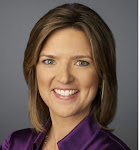Soledad O’Brien
Explores Racial and Ethnic Identity in Provocative Black in America
Who is Black in America? Debuts Sunday, Dec. 09 at 8:00p.m. and 11:00p.m. ET & PT
“I don’t really feel
Black,” says 17-year-old Nayo Jones. Her mother is Black; she was
raised apart from her by her White father, and she identifies herself as
biracial. “I was raised up with White people, White music, White food so
it’s not something I know,” she says in a new documentary that explores the
sensitive concepts of race, cultural identity, and skin tone.
For the fifth installment
of her groundbreaking Black in America series, CNN anchor and special
correspondent Soledad O’Brien reports for Who is Black in
America? The documentary debuts Sunday, Dec. 09 at 8:00p.m. and
11:00p.m. ET & PT and replays on Saturday, Dec. 15 at 8:00p.m. and
11:00p.m. ET & PT.
Is Jones Black? Is
Blackness based upon skin color or other factors? The 2010 U.S. Census
found 15 percent of new marriages are interracial, a figure that is twice what
was reported in 1980. One in seven American newborns were of mixed race
in 2010, representing an increase of two percent from the 2000 U.S.
Census. Within this context, O’Brien examines how much regarding race and
identity are personal choices vs. reflections of an external social
construct.
Tim Wise, an author and
anti-racism activist believes in self identification, but says, in practice,
society often will remind biracial people like Jones of their Blackness, “in a
million subtle ways,” he says in the documentary.
As the hour unfolds,
O’Brien follows Jones, and her best friend and fellow high school student Becca
Khalil, as they take part in a spoken word workshop led by the
Philadelphia-based poet, Perry “Vision” DiVirgilio.
Vision, who is biracial,
says he never felt quite White or Black enough to fit in with friends who had
parents of one race. Vision identifies as Black, and says that identity
is more than skin – that identity encompasses experiences and struggles.
Through his workshop, he encourages young people to think, talk, and write
about identity, as well as the concept of colorism, which he blames for his
early struggles with self-esteem and identity.
“Colorism is a system in
which light skin is more valued than dark skin,” says Drexel University’s
assistant teaching professor for Africana studies, Yaba Blay. Blay
tells O’Brien that, as a young African-American woman growing up in New Orleans, she felt
discriminated against – often by lighter skinned African Americans – due to her
dark skin tone.
Blay’s work focuses on
how prejudice related to skin tone can confuse and negatively impact identity
and self esteem. She aims to help others also develop positive images of
cultural identity – for African Americans of all shades.
Often complicating
concepts of identity beyond multiracial heritage is skin tone. Khalil,
who has light-colored skin and two parents who are Egyptian in origin,
identifies herself as African American. She feels contemporaries dismiss
her African American identity due to her light skin tone. She says in the
documentary that she wishes she had darker skin.
Writer, producer, and
image activist, Michaela Angela Davis says she accepts that race is a
social construct, but she feels it is important for people to name and claim
their own racial identity: “You are who you say that you are,” she says in the
documentary.
Online, a complimentary
digital extension will continue the discussion of Who is Black in America?
by featuring iReports, news stories, and opinion pieces on what racial identity
means today from a variety of perspectives. Stories can be found at www.cnn.com/blackinamerica.



















































5 comments:
My my. I am so totally weary of Soledad and her "specials". Does this woman not know any journalistic ventures that would enjoy wider appeal than her never ending, not-so-subtly-tinged race specials? I was utterly disappointed when she was brought back to the morning show, for I simply cannot endure her arrogance and lack of depth.
I'll make sure to watch this. I enjoy Soledad's specials on race.
Soledad spouting how happy she is that Zucker was hired. She needs to thank the bosses she has now for giving her another chance. Zucker won't be able to fix the ratings for Starting Point until someone fixes Soledad.
I agree. I'm not a Soledad fan.
Get rid of her, and use her multi-million dollar salary for more news reports from inside places like Syria.
She brings nothing special to CNN, and let's face it -- she must know that, as she is one of the first puckering up to kiss Zucker's b*tt !!
I thought the documentary was pretty good. It got good ratings and from what I have seen online, lots of people in the black and biracial communities applauded Soledad and CNN for their coverage. Yes, its contoversial but CNN shouldn't be afraid of the heat. So, its not a show for everyone - what is? Why do white people think every show must be all about them and we can never ever talk about race? Soledad is an awesome journalist! Good job girl!
Post a Comment